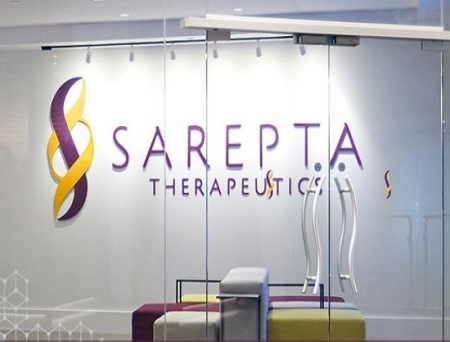Sarepta Pauses Shipments of Duchenne Gene Therapy Elevidys Amid FDA Safety Review

Sarepta Therapeutics has notified the US Food and Drug Administration (FDA) of its decision to voluntarily and temporarily pause all shipments of Elevidys (delandistrogene moxeparvovec) for Duchenne muscular dystrophy in the United States, effective from the close of business on July 22.
The company stated the move was taken proactively to allow “the necessary time to respond to any requests for information and allow Sarepta and FDA to complete the Elevidys safety labeling supplement process.”
This follows the FDA’s request last week to pause distribution following three deaths potentially linked to acute liver failure in individuals treated with Elevidys or investigational gene therapy using the same AAVrh74 serotype that is used in Elevidys.
Despite the request, Sarepta decided to continue supplying the therapy to the ambulant population, citing their comprehensive scientific interpretation of the data, which showed “no new or changed safety signals in the ambulant patient population.”
“As a patient-centric organisation, the decision to voluntarily and temporarily pause shipments of Elevidys was a painful one, as individuals with Duchenne are losing muscle daily and in need of disease-modifying options,” said Doug Ingram, chief executive officer, Sarepta.
“It is important for the patients we serve that Sarepta maintains a productive and positive working relationship with the FDA, and it became obvious that maintaining that productive working relationship required this temporary suspension while we address any questions that the FDA may have and complete the Elevidys label supplement process,” he added.
The company reiterated its commitment to transparency and patient safety, assuring continued communication with patients, families, healthcare professionals, and the wider Duchenne community.
Elevidys is a single-dose, adeno-associated virus (AAV)-based gene transfer therapy delivered via intravenous infusion. It received traditional FDA approval on June 20, 2024, for use in ambulatory DMD patients aged 4 and older with a confirmed DMD gene mutation. The therapy was previously granted accelerated approval for non-ambulatory patients on June 22, 2023.
Sarepta earlier acknowledged the death of a 51-year-old non-ambulant Limb-Girdle Muscular Dystrophy (LGMD) patient, but clarified that the tragic event occurred in a Phase 1 clinical trial for an investigational gene therapy called SRP-9004.
“SRP-9004 is a clinical stage therapy that is intended to treat a different disease (LGMD Type 2D), is administered using a different dose, and is manufactured using a different process. The LGMD study participant who passed away was not treated with Elevidys, and the dosing for the SRP-9004 trial had concluded at the time of his death,” the company stated.
Sarepta Therapeutics Duchenne muscular dystrophy Elevidys Gene therapy Limb-Girdle Muscular Dystrophy (LGMD) US Food and Drug Administration (FDA)
Last news about this category
We use our own and third party cookies to produce statistical information and show you personalized advertising by analyzing your browsing, according to our COOKIES POLICY. If you continue visiting our Site, you accept its use.
More information: Privacy Policy
















